- Home
- Anne Mather
The Longest Pleasure Page 13
The Longest Pleasure Read online
Page 13
‘Before we go any further, I think there is something you should see, Helen,’ Frank Graham uttered quietly. ‘You may have wondered why my colleague, Mr Toland, is here. I should explain that his firm were solicitors to your great-grandfather for many years, and as what we have to tell you concerns your great-grandfather, it’s appropriate that he should present the documentation his grandfather held to you.’
‘Documentation …’
Helen was bewildered and, as if realising he was making a poor job of elaboration, the solicitor turned to his angular colleague. ‘Toland, if you would give Miss Michaels a copy of the document we’re talking about …’
‘Of course.’ With a flourish, the other man extracted a form from the brief-case residing on the desk beside him, and passed it to her. ‘If you would read this, Miss Michaels. Then we can proceed.’
It was a copy of a birth certificate, Helen saw at once, and with a feeling of foreboding, her eyes lifted to Rafe’s. ‘Read it,’ he advised, but there was no eagerness in the submission. Evidently, he knew what it was, Helen decided tensely and, with some misgivings, she did as he suggested.
It was Rafe’s birth certificate, a circumstance she had half anticipated. At least, she assumed it was his. He had apparently been christened Raphael, and born on the twenty-fifth of September, 1954—in Melbourne, Australia. His parents’ names were given as Maria, née Cardinale, and Gilbert Sinclair.
Sinclair!
CHAPTER SEVEN
HELEN’S startled eyes leapt to Rafe’s face, seeking the smug condescension she was sure she would find there. In those first horrifying minutes, all her confused brain could absorb was that Rafe had been born with the same name as her grandmother, and all she could think was that this was some terrible conspiracy to deprive her of her heritage. Nan had had no sons, or grandsons, for that matter. Heavens, hadn’t she told her that when her—Helen’s—mother was born, she had nearly died, and the doctors had warned her not to have any more children. If there had been a son, she would have known about it. Her grandmother would have told her. Wouldn’t she?
‘You’ve read it?’ Frank Graham inquired, even as Helen was coming to terms with the fact that there was no smugness in Rafe’s face, rather a rueful look of pity. Pity! She didn’t want his pity! Who, in God’s name, was he? And what did this all mean?
‘Yes,’ she managed to articulate at last. ‘Yes, I’ve read it, but——’
‘Please.’ Frank Graham held up his hand to silence her. ‘I know there must be a hundred questions you want to ask, but I suggest you allow Mr Toland to explain the situation to you. Then, if you still have any queries, we can deal with them.’
‘Just tell me one thing.’ Helen quivered as she held up the paper in her hand. ‘Is—is this document genuine?’
‘Oh, yes it’s genuine all right,’ put in the man who had produced it, and with a groan of impatience, Rafe intervened.
‘I didn’t want to do this, Helen,’ he exclaimed savagely. ‘You have to believe me! I tried to tell the old lady——’
‘You don’t honestly expect me to believe that!’ Helen interrupted him, her voice rising uncontrollably. ‘My God——’
‘I think we must leave the recriminations until later,’ said Frank Graham heavily, his face suffused with unexpected colour. ‘Helen, I can understand how you must be feeling, but please—you must let my colleague explain.’
Helen felt the heat invade her cheeks at his words, and a feeling of shame swept over her. Dear God, she was behaving like a fishwife! What must the two solicitors be thinking of her? Heavens, Nan was scarcely cold in her coffin, and she was behaving as if her death meant nothing more than a means for her to get her hands on her grandmother’s money. It was shameful and humiliating. Whenever Rafe Fleming was involved, she seemed to show up at her worst. Rafe Fleming! She shook her head disbelievingly. She would never think of him as Rafe Sinclair.
‘May I go on?’ Mr Toland was regarding both of them with a faintly jaundiced eye, and Helen guessed this wasn’t the first time he had encountered deathbed rivalry. But it wasn’t like that, she pleaded silently. She had never been jealous of anyone.
‘If you must,’ Rafe answered him, moving to stand by the windows, his back to the room and its occupants. He was so casual; so controlled, thought Helen bitterly. But then, he knew what was to come. He had probably written it himself.
‘Very well.’ Satisfied that he had her attention at least, Mr Toland took another paper from his brief-case and began to read from it. ‘Sir Gilbert Sinclair—your great-grandfather, Miss Michaels—was married in the year 1902, to the Honourable Miss Sarah Fielding, and in 1904 their first son, also christened Gilbert, was born. He was nicknamed Bertie, to distinguish between him and his father, you understand, and from the very beginning he proved himself a rather headstrong and impetuous child.’
Helen tried to concentrate. ‘That—that would be my—grandfather?’
‘No, Miss Michaels. Your grandfather’s name was Gerald. He was born three years later. In 1907.’
‘Oh, yes, of course.’ Helen shook her head. She wasn’t paying enough attention. Of course her grandfather had been Sir Gerald Sinclair. She moistened her lips. ‘I don’t remember Great-uncle Gilbert—Bertie—at all.’
‘No.’ Mr Toland inclined his head. ‘No, well, that’s hardly surprising, Miss Michaels. Gilbert, or Bertie—I think I shall call him the latter to avoid confusion, if you don’t mind—left England in 1924, and so far as I know he never came back.’
Helen frowned. ‘So that’s why my grandfather inherited the title.’
‘Not exactly.’ Mr Toland cleared his throat, and Rafe turned to give him a belittling look.
‘For God’s sake, get on with it!’ he muttered, hunching his shoulders, and Helen was amazed at the alacrity with which Mr Toland obeyed.
‘Where was I?’ he ventured in some confusion, and then, forestalling a second rebuke from Rafe, he exclaimed: ‘Oh, yes. Your grandfather’s inheritance of the title, Miss Michaels. No, it was not in your great-grandfather’s power to withhold that honour from his eldest son.’
‘No?’ Helen caught her breath, but Mr Toland pressed on.
‘Your great-uncle left England under a cloud, Miss Michaels. As I have said, the year was 1924, and for all its boast of enlightenment society was still extremely conservative. The involvement of a married woman with a young man many years her junior was not something one could advertise without causing a scandal. And when the two people concerned—one of which was your great-uncle—refused to be discreet, your great-grandfather refused to recognise them. He forebade Bertie to enter his house, he cut off his allowance, and turned what was left of society against him.’
‘And he left England.’
‘They left England, Miss Michaels. The woman, her name is not important here, accompanied your great-uncle to Australia, no doubt hoping that in time she could obtain a divorce and they could be married.’
Helen was beginning to understand, and with every word Mr Toland uttered, a sense of panic was growing inside her. She knew what was coming—or she thought she did. Rafe—Rafe was Gilbert Sinclair’s grandson; her grandfather never should have inherited the title; Rafe was her cousin—the word stuck in her throat; and the real heir to the estate.
‘As you have probably guessed,’ Mr Toland was not unaware of her troubled expression, ‘there was a son, another Gilbert——’
‘Rafe’s father,’ put in Helen bitterly. ‘Yes, I’m not completely stupid, Mr Toland.’
‘But you are premature,’ said Rafe, turning to look at her with impatient eyes. ‘You’re anticipating the worst. Let the man finish before you start jumping to conclusions.’
‘I suppose it runs in the family,’ retorted Helen unsteadily. ‘Being premature, I mean.’ But she desperately wished she could forgo the conclusion. Oh Adam, she thought fervently, thank God I have you! She could hardly wait to put the miles between here and London behind her.
/> ‘Listen,’ ordered Rafe harshly, irritated by her refusal to sustain his gaze, and Helen balled her hands in her lap and wished Mr Toland was finished.
‘Should I go on?’ The solicitor was uncertain, and Rafe expelled his breath on a long sigh.
‘I wish you would,’ he agreed, his jaws clamping on his own frustration, and Mr Toland gave a helpless little shrug before complying.
‘What I ought to have explained is that whereas the baronetcy can only be inherited by the eldest surviving son, the estate is not entailed, Miss Michaels. That is to say, that although your great-grandfather could not pass his title directly to your grandfather, he could make his second son his sole heir.’
Helen blinked. ‘Then—then my mother’s claim was legal?’
‘Had she lived, of course.’
Mr Toland nodded, but clearly his colleague was showing some impatience now. ‘I think we are becoming bogged down in dogma, Toland,’ he declared quietly. ‘If you will permit me?’ He looked to the taller man for confirmation, and with evident unwillingness it was granted: ‘Briefly Helen, the situation your grandmother was made aware of was this: your great-uncle had left England, penniless, in 1924, with the woman who he no doubt intended to make his wife, if or when a divorce could be obtained.’ He sighed. ‘Their son was born a bare six months after they left England.’ He paused to allow his words to sink in, and then added steadily: ‘Long before a divorce could be granted. Unhappily, the child’s mother died within a few weeks of the boy’s birth. It seems she was too old to bear children. She was almost twenty years your great-uncle’s senior. In consequence, the child was illegitimate. He never legally acquired his father’s name.’
‘But—the birth certificate——’
Helen couldn’t prevent the involuntary question, and she sensed Mr Toland’s somewhat cynical reaction.
‘Your uncle grew up in an orphanage in New South Wales, Miss Michaels,’ continued Frank Graham evenly. ‘I regret to tell you that his father committed suicide on the day the woman he loved was buried. The boy knew little of his history until he was old enough to examine the contents of a deed-box which contained the few belongings still remaining of his father’s. When he sought employment, he used his father’s name, and no one has been able to discover whether or not he formalised the transition. He married Maria Cardinale, the daughter of an Italian immigrant, in 1953 and, as you rightly surmised, Rafe is their son.’
Helen shook her head. ‘But what does this mean?’
‘It doesn’t mean anything,’ exclaimed Rafe, leaving his stance by the window to stride irritably across the floor, but now Mr Toland corrected him.
‘When Mr—Sinclair’s father was killed in a mining accident in 1957,’ he asserted doggedly, ‘Mrs Sinclair wrote to your grandparents. It was the first intimation your grandfather had had that his brother had not died childless. Such information as he had gleaned over the years had led him to believe that both the mother and the child had died, and it seems possible that Gilbert Sinclair would never have approached the family for assistance.
‘However,’ with a rueful glance in Rafe’s direction, ‘Mrs Sinclair wanted to remarry, and—and the child was—a responsibility.’
‘Why don’t you just say I was a nuisance; an encumbrance; she didn’t want me hanging around her neck,’ demanded Rafe violently. ‘It’s the real explanation.’
Frank Graham shrugged. ‘I don’t think Helen wants to hear that, Rafe.’
‘Doesn’t she?’ Rafe was sceptical. ‘Oh, I disagree, I’m sure it gives her a greal deal of satisfaction.’
‘Please.’ Frank Graham gave him an appealing look. ‘Can I go on? Helen has to know how you come to be here. You do owe her that obligation.’
Helen didn’t know what to think. Her mind was buzzing, and although her brain was telling her that she had been precipitate, that in spite of her relationship to Rafe, things were not as bad as she had first imagined, she couldn’t quite believe it.
‘The upshot of that communication was that your grandfather was eventually persuaded—by his wife—to allow her to bring the boy back to England. But,’ he paused once again, ‘due to the unusual circumstances of his paternity, Sir Gerald refused to grant him the same privileges granted his own grandchild—yourself. Instead, as the Flemings were eager to adopt a child, and there was still the uncertainty of what surname was legally his, Rafe Fleming seemed a satisfactory alternative.
‘I see.’ Helen permitted herself a glance in Rafe’s direction, but this time he looked away. This explained so much; not least, her grandmother’s affection for her nephew—great-nephew.
‘Mr Toland, as a representative of the firm who dealt with your great-grandfather’s affairs at that time, is simply here to corroborate the facts,’ Frank Graham said now. ‘And now that the circumstances of Rafe’s background have been explained, we can get to the reasons for his being here today.’ He linked his somewhat podgy hands together and seemed to be considering his words before going on. ‘First of all, I should explain, Helen, that your grandmother’s estate is not precisely what it was when your grandfather died in 1961.’
‘Oh, I realise that.’ Helen swallowed. ‘What with death duties, etc. I’m fully prepared for the possibility that I might have to sell the house.’
‘You might have to?’ Frank Graham made a slight choking sound, and then smothered it with a cough. ‘Yes—well, that’s hardly a consideration, as it happens. Contrary to your belief, Lady Elizabeth proved herself a far more astute businesswoman than the late Sir Gerald could have anticipated. With a comparatively small amount of capital initially, she has succeeded in multiplying her investments to such an extent that, on her death, her estate was worth something in the region of three million pounds. Even after death duties are paid, the balance will be quite considerable.’
Helen was glad she was sitting down when she heard this news. Three million pounds! She couldn’t believe it. Not dear old Nan, who hesitated over buying an extra ounce of wool, just in case she didn’t need it.
‘I can see from your face that you had no idea.’ Once again, the solicitor looked at Rafe, who had resumed his contemplation of the snow-covered grounds beyond the darkening windows. But he had made no response to the solicitor’s startling revelations, and Helen wondered uneasily if he had already known.
‘I now come to the most difficult announcement,’ went on Frank Graham heavily, and Helen’s nerves grated. ‘During the last few years of her life, Lady Elizabeth spent a great deal of time dwelling on the past. I know she always felt that Rafe had not had a fair deal, so far as the Sinclairs were concerned, and she very much regretted that she had not taken a stand sooner and compelled her husband to recognise the boy’s claim. The unfortunate deaths, so soon after one another, of Rafe’s adopted parents enabled her to take a more active role in his life, and I don’t think anyone could doubt the very natural affection that grew between them.’ He hesitated for a moment, and then continued: ‘I know this can’t be very easy for you to accept, Helen, but in recent years Lady Elizabeth did come to the reluctant conclusion that your feeling for the estate had—how shall I put it?—dwindled.’
‘Dwindled?’
‘Well, you have spent very little time here since you moved to London, haven’t you, Helen?’ he said reasonably. ‘And I know your grandmother was concerned that—well, with such a large inheritance, you might be tempted to sell Castle Howarth.’
‘Sell Castle Howarth?’ Helen knew she sounded foolish repeating everything Mr Graham was saying, but she couldn’t help it. How could Nan have doubted her affection for her home? Had her perception been so distorted she had actually believed her granddaughter might sell off the whole estate? She refused to consider that this had been an alternative she had discussed with Adam. That had been before she came here; before she realised how many people she might hurt.
‘Well, it was a possibility,’ remarked the solicitor drily. ‘Didn’t you say only a few moments ago——�
�
‘That was when I thought there might not be funds to support it,’ protested Helen uncomfortably, glad now that Rafe could not see her face. ‘But three million pounds!’
‘A fortune,’ agreed Frank Graham, without emotion. ‘A combination of shares in banking, electronics, and chemicals. Your grandmother was a clever woman, Helen. She anticipated that the price of oil would eventually be controlled by market forces, and instead of speculating on the shifting sands of Middle-Eastern politics, she used her funds to buy into industries which should outlast us all. I think she enjoyed pitting her wits against the economists. At any rate, she showed what can be done, even today, with a little cash and a lot of intuition.’
Helen moved her head bewilderedly. ‘I simply can’t take it in.’
‘No. Well, that’s not unnatural,’ remarked the solicitor drily. ‘Your grandmother insisted on keeping her good fortune a closely-guarded secret. As a matter of fact, I sometimes used to wonder if she was ashamed of it. I know she never wanted any of her friends or neighbours to suspect her weakness for the stock market.’
Helen moistened her lips. ‘Or me,’ she murmured, feeling a latent sense of deprivation. How well had she really known her grandmother? she wondered painfully. It was obvious that the gulf between them had been wider than she had ever imagined.
Which brought her back to Rafe. Her eyes flickered unwillingly in his direction. Evidently he had been in her grandmother’s confidence. But she still had to learn what that revelation might mean.
‘Now,’ said Frank Graham heavily, ‘we come to the estate and its entitlement.’ He shuffled the pile of papers on the desk and cleared his throat once again. ‘I hope what I have to say will not upset you too much, Helen. Your grandmother has done what she thinks is best for Castle Howarth. She felt it was her duty, as its last chatelaine, to ensure that its beauty will be here for her heirs to enjoy.’

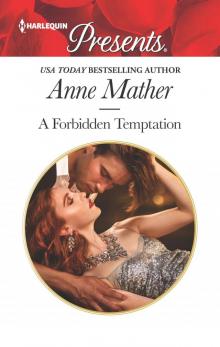 A Forbidden Temptation
A Forbidden Temptation Dark Castle
Dark Castle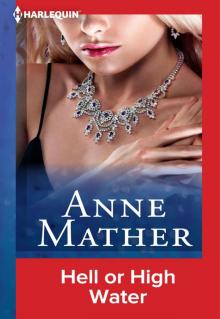 Hell Or High Water
Hell Or High Water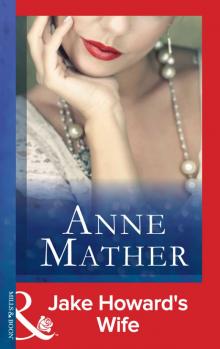 Jake Howard's Wife
Jake Howard's Wife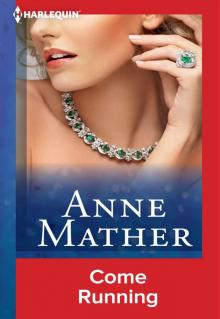 Come Running
Come Running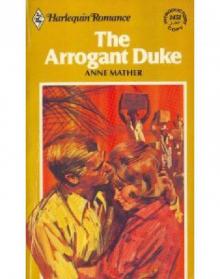 The Arrogant Duke
The Arrogant Duke Sweet Revenge
Sweet Revenge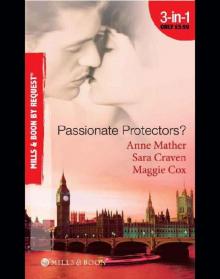 Passionate Protectors?
Passionate Protectors?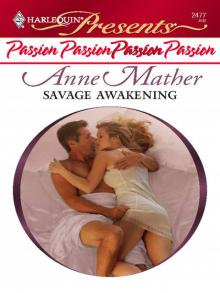 Savage Awakening
Savage Awakening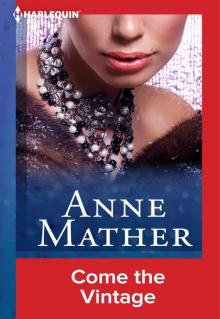 Come the Vintage
Come the Vintage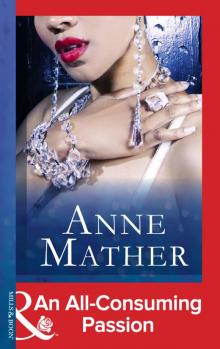 An All-Consuming Passion
An All-Consuming Passion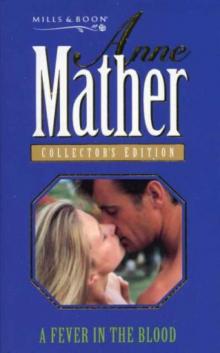 A Fever In The Blood
A Fever In The Blood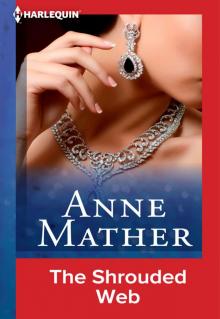 The Shrouded Web
The Shrouded Web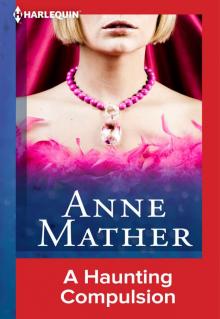 A Haunting Compulsion
A Haunting Compulsion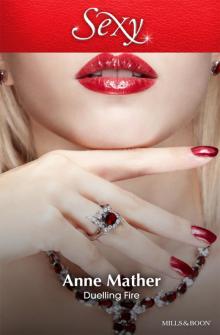 Duelling Fire
Duelling Fire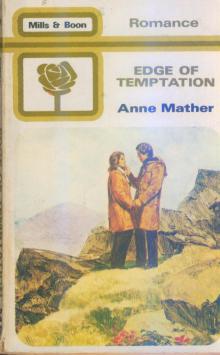 Edge of Temptation
Edge of Temptation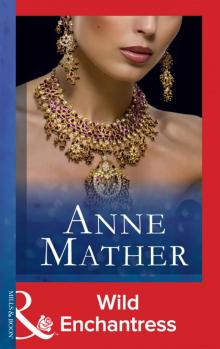 Wild Enchantress
Wild Enchantress The Brazilian Millionaire's Love-Child
The Brazilian Millionaire's Love-Child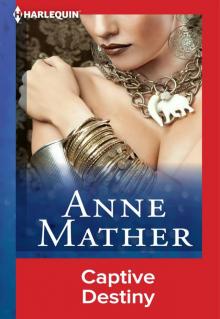 Captive Destiny
Captive Destiny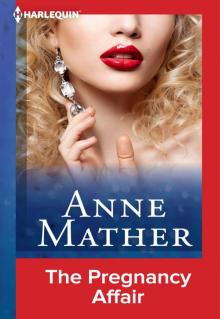 The Pregnancy Affair
The Pregnancy Affair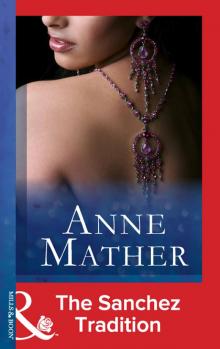 The Sanchez Tradition
The Sanchez Tradition A Passionate Affair
A Passionate Affair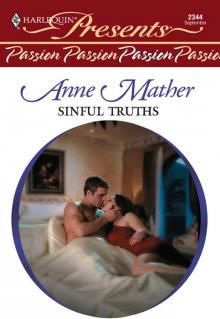 Sinful Truths
Sinful Truths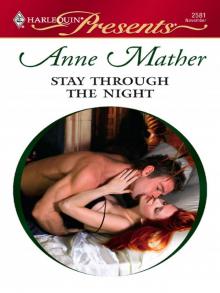 Stay Through the Night
Stay Through the Night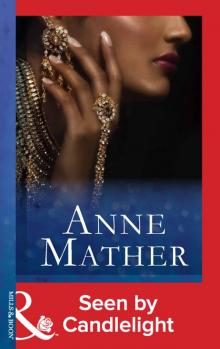 Seen by Candlelight
Seen by Candlelight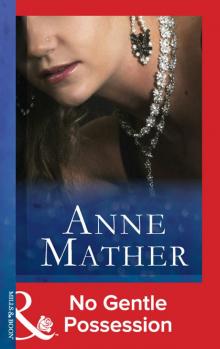 No Gentle Possession
No Gentle Possession His Forbidden Passion
His Forbidden Passion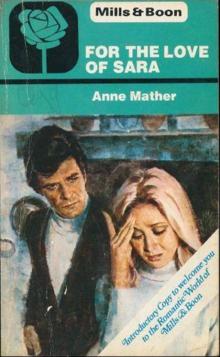 For the Love of Sara
For the Love of Sara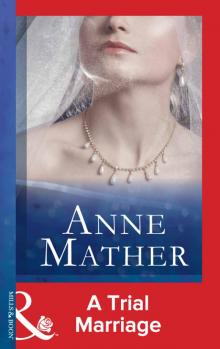 A Trial Marriage
A Trial Marriage Melting Fire
Melting Fire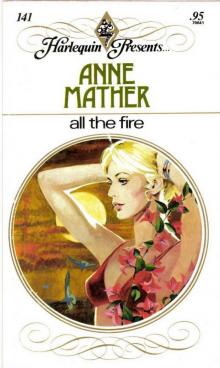 All The Fire
All The Fire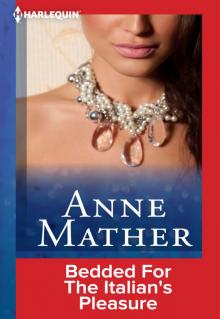 Bedded For the Italian's Pleasure
Bedded For the Italian's Pleasure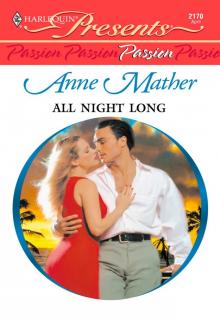 All Night Long
All Night Long The Japanese Screen
The Japanese Screen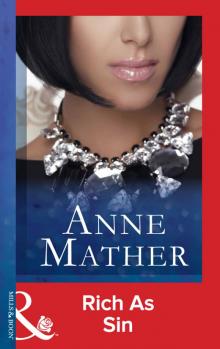 Rich as Sin
Rich as Sin Smokescreen
Smokescreen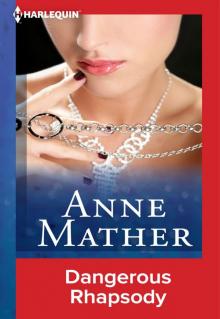 Dangerous Rhapsody
Dangerous Rhapsody Brittle Bondage
Brittle Bondage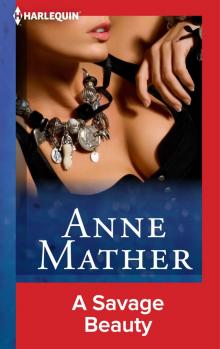 A Savage Beauty
A Savage Beauty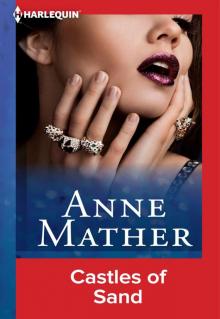 Castles of Sand
Castles of Sand A Distant Sound of Thunder
A Distant Sound of Thunder THE VIRGIN'S SEDUCTION
THE VIRGIN'S SEDUCTION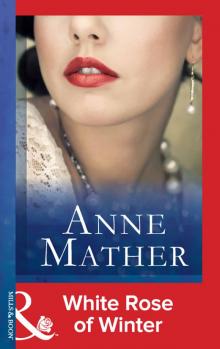 White Rose of Winter
White Rose of Winter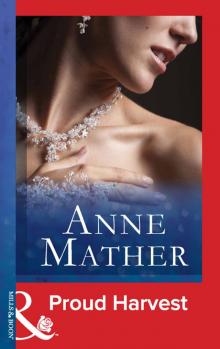 Proud Harvest
Proud Harvest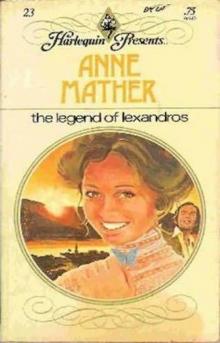 The Legend of Lexandros
The Legend of Lexandros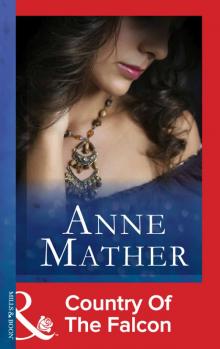 Country of the Falcon
Country of the Falcon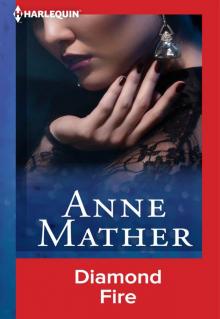 Diamond Fire
Diamond Fire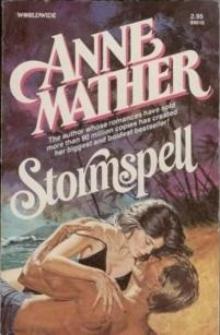 Stormspell
Stormspell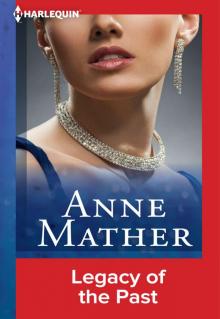 Legacy of the Past
Legacy of the Past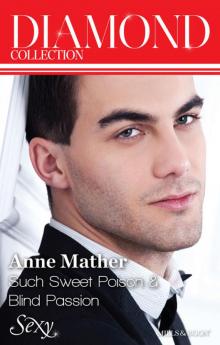 Such Sweet Poison/Blind Passion
Such Sweet Poison/Blind Passion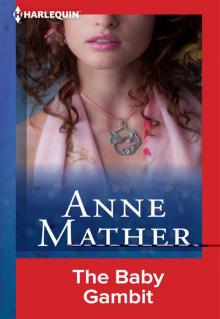 The Baby Gambit
The Baby Gambit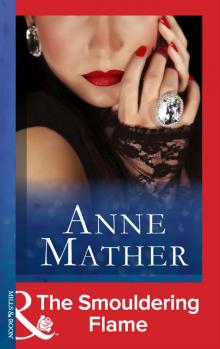 The Smouldering Flame
The Smouldering Flame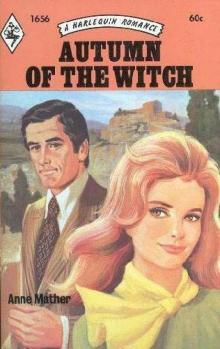 Autumn of the Witch
Autumn of the Witch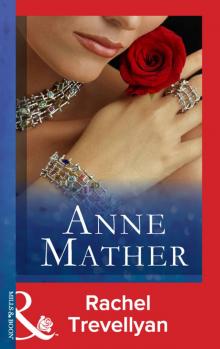 Rachel Trevellyan
Rachel Trevellyan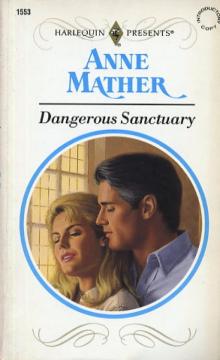 Dangerous Sanctuary
Dangerous Sanctuary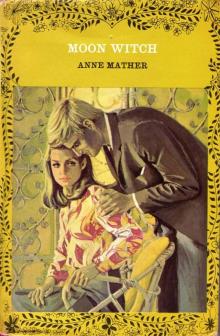 Moon Witch
Moon Witch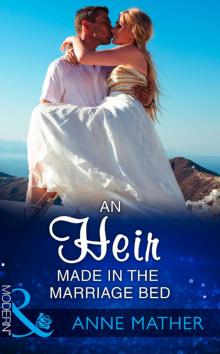 An Heir Made in the Marriage Bed
An Heir Made in the Marriage Bed Images Of Love
Images Of Love Innocent Obsession
Innocent Obsession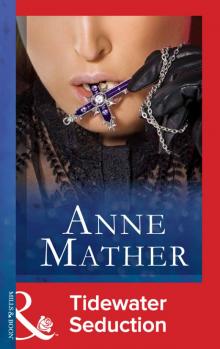 Tidewater Seduction
Tidewater Seduction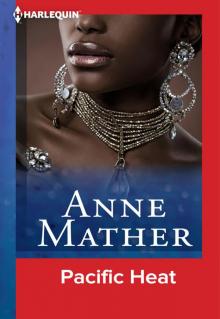 Pacific Heat
Pacific Heat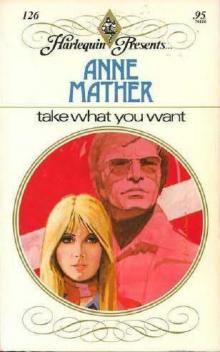 Take What You Want
Take What You Want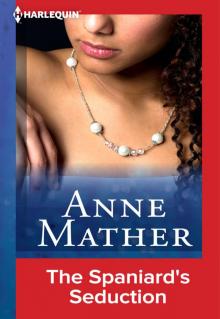 The Spaniard's Seduction
The Spaniard's Seduction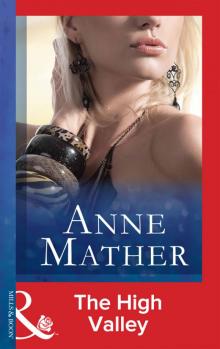 The High Valley
The High Valley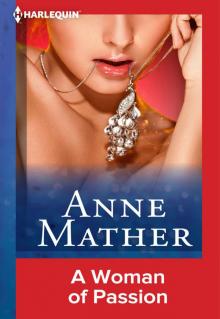 A Woman of Passion
A Woman of Passion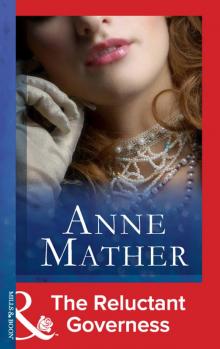 The Reluctant Governess
The Reluctant Governess Charade in Winter
Charade in Winter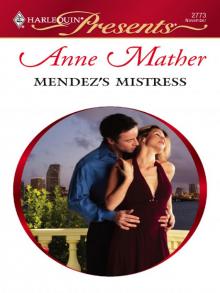 Mendez’s Mistress
Mendez’s Mistress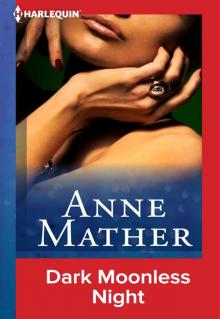 Dark Moonless Night
Dark Moonless Night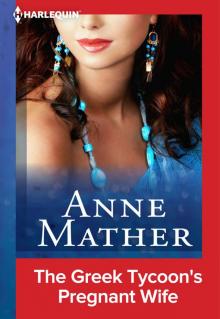 The Greek Tycoon's Pregnant Wife
The Greek Tycoon's Pregnant Wife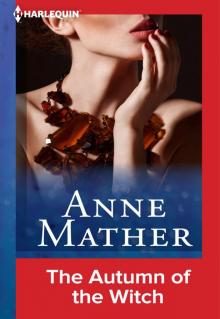 The Autumn of the Witch
The Autumn of the Witch Night Heat
Night Heat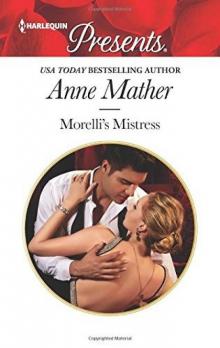 Morelli's Mistress (Harlequin Presents)
Morelli's Mistress (Harlequin Presents)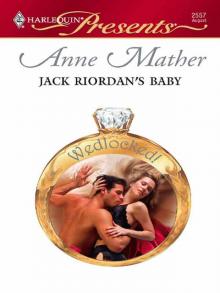 Jack Riordan's Baby
Jack Riordan's Baby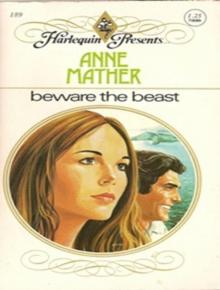 Beware the Beast
Beware the Beast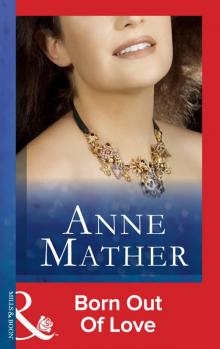 Born Out of Love
Born Out of Love Greek Affairs in his Bed: Sleeping with a StrangerBlackmailed into the Greek Tycoon’s BedBedded by the Greek Billionaire
Greek Affairs in his Bed: Sleeping with a StrangerBlackmailed into the Greek Tycoon’s BedBedded by the Greek Billionaire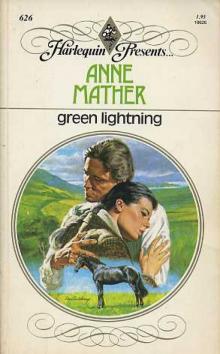 Green Lightning
Green Lightning Guilty
Guilty Snowfire
Snowfire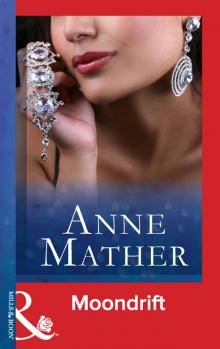 Moondrift
Moondrift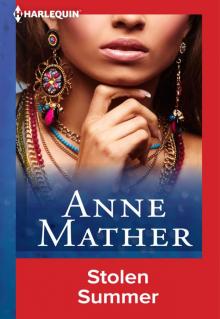 Stolen Summer
Stolen Summer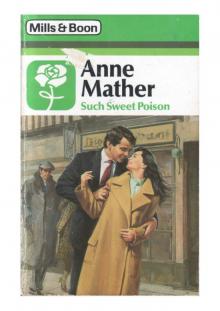 Such Sweet Poison
Such Sweet Poison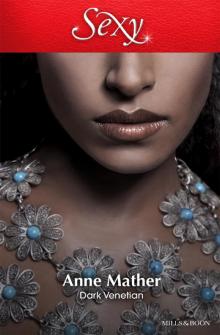 Dark Venetian
Dark Venetian Innocent Sins
Innocent Sins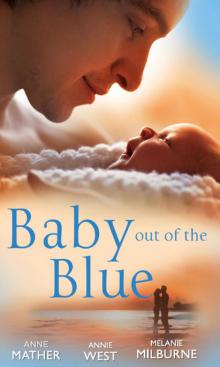 Baby Out of the Blue
Baby Out of the Blue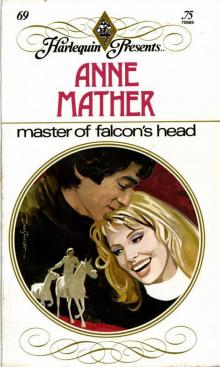 Master of Falcon's Head
Master of Falcon's Head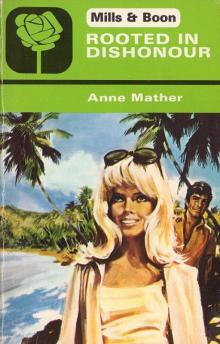 Rooted in Dishonour
Rooted in Dishonour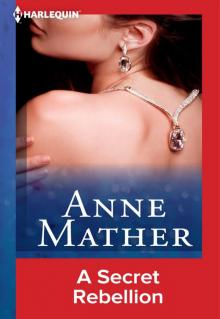 A Secret Rebellion
A Secret Rebellion The Forbidden Mistress
The Forbidden Mistress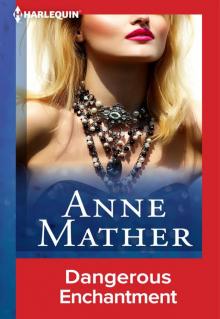 Dangerous Enchantment
Dangerous Enchantment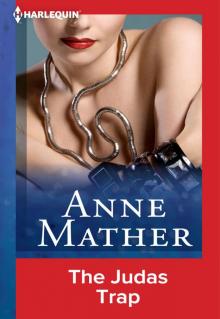 The Judas Trap
The Judas Trap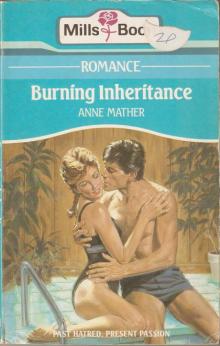 Burning Inheritance
Burning Inheritance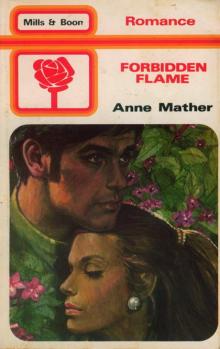 Forbidden Flame
Forbidden Flame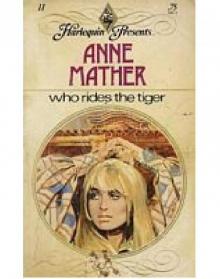 Who Rides the Tiger
Who Rides the Tiger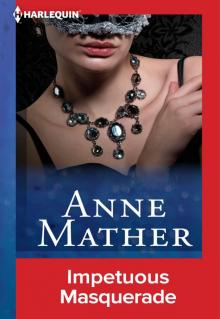 Impetuous Masquerade
Impetuous Masquerade Fallen Angel
Fallen Angel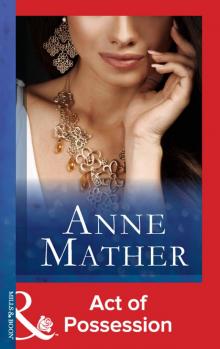 Act of Possession
Act of Possession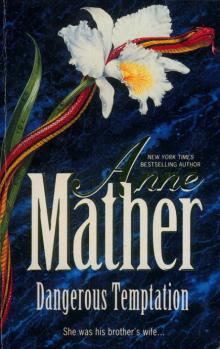 Dangerous Temptation
Dangerous Temptation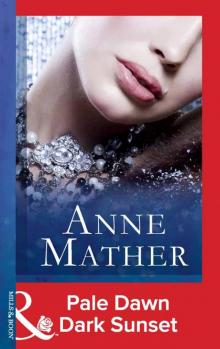 Pale Dawn Dark Sunset
Pale Dawn Dark Sunset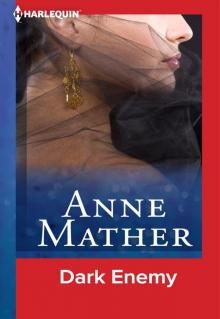 Dark Enemy
Dark Enemy Innocent Virgin, Wild Surrender
Innocent Virgin, Wild Surrender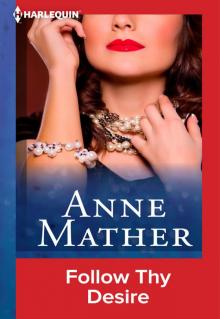 Follow Thy Desire
Follow Thy Desire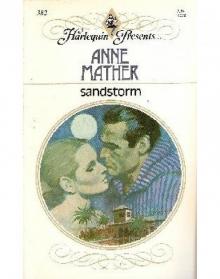 Sandstorm
Sandstorm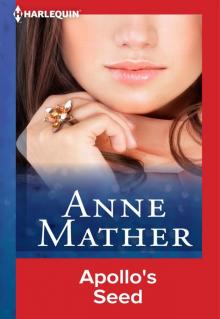 Apollo's Seed
Apollo's Seed Whisper Of Darkness
Whisper Of Darkness A Wild Surrender
A Wild Surrender A Dangerous Taste of Passion
A Dangerous Taste of Passion The Night Of The Bulls
The Night Of The Bulls Hot Pursuit
Hot Pursuit The Longest Pleasure
The Longest Pleasure An Elusive Desire
An Elusive Desire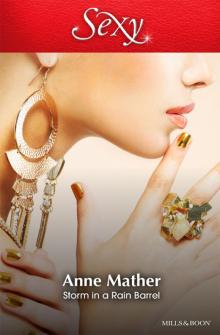 Storm In A Rain Barrel
Storm In A Rain Barrel